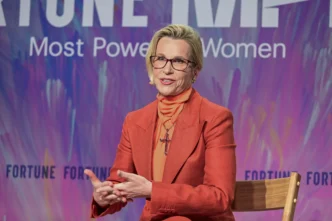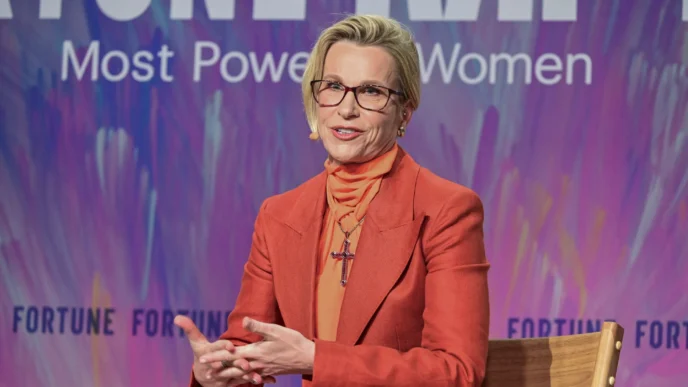OpenAI, the artificial intelligence pioneer behind ChatGPT, is taking aim at one of the most tedious aspects of corporate finance: the grueling, repetitive work carried out by junior bankers. In a strategic move, the company has hired former Goldman Sachs staff with deep banking experience to help develop AI tools that automate financial analysis, report generation, and data-heavy workflows traditionally handled by junior analysts.
The Problem: Junior Bankers’ Workload
In investment banking, junior staff often spend long hours on repetitive tasks, including:
- Preparing pitch decks and client presentations
- Conducting financial modeling and data reconciliation
- Compiling market research and regulatory reports
- Reviewing and formatting large datasets for senior bankers
While these tasks are critical, they consume a disproportionate amount of time that could otherwise be spent on strategic analysis, deal-making, or client engagement. This imbalance has long been a pain point for the industry, contributing to burnout and high turnover among junior bankers.
OpenAI’s Approach
By hiring ex-Goldman employees, OpenAI gains first-hand insights into the workflows, pain points, and inefficienciesof the banking sector. These hires bring deep institutional knowledge, enabling AI systems to:
- Automate Repetitive Tasks: Use natural language processing (NLP) to generate reports, presentations, and financial summaries.
- Enhance Data Accuracy: Reduce human error in spreadsheet calculations and data entry tasks.
- Improve Workflow Efficiency: Free up analysts to focus on high-value tasks like modeling complex deals or strategic client analysis.
- Integrate with Existing Systems: Ensure AI tools work seamlessly with banking software, CRM systems, and internal data platforms.
Why Ex-Bankers Matter
Hiring former Goldman Sachs staff is particularly strategic because:
- They understand the hierarchy and workflow of investment banking.
- They can identify pain points that AI developers might overlook.
- They bring credibility to client-facing applications, ensuring tools meet industry standards.
- They help tailor AI to compliance and regulatory requirements, a crucial factor in finance.
OpenAI’s goal is not to replace junior bankers but to augment their capabilities, allowing firms to operate more efficiently while improving work-life balance.
Potential Market Impact
The application of AI in banking is already showing promise:
- Reduced turnaround times: Financial reports and pitch books that once took hours or days can now be generated in minutes.
- Cost savings: Automation could lower operational costs associated with entry-level staff while reallocating resources to higher-value work.
- Talent retention: Reducing grunt work may improve job satisfaction and retention among junior employees.
- Competitive advantage: Banks adopting AI-driven workflows could gain speed and accuracy in deal execution, potentially capturing more market share.
According to industry analysts, the adoption of AI could reshape the junior analyst role, transforming it from administrative-heavy to analytical-focused.
Broader Implications for the Financial Industry
OpenAI’s initiative reflects a broader trend of AI adoption across the financial sector, which includes:
- Algorithmic trading and predictive analytics
- Fraud detection and compliance monitoring
- Client engagement through AI-powered chatbots
- Portfolio optimization and risk modeling
By automating mundane tasks, banks may redefine organizational structures, allowing senior staff to focus on strategy while AI handles data-intensive work.
Challenges Ahead
Despite the promise, several challenges remain:
- Data Security and Privacy: Financial data is highly sensitive, requiring robust AI safeguards.
- Regulatory Oversight: Any automation in reporting and compliance must meet stringent regulatory standards.
- Integration Complexity: Banks use diverse legacy systems, making seamless AI implementation challenging.
- Cultural Acceptance: Some employees may resist automation, fearing job displacement.
OpenAI and its banking partners will need to carefully manage these challenges to ensure adoption and maximize efficiency gains.
Expert Insight
Michael Chen, a former investment banker turned fintech consultant, noted:
“AI has the potential to dramatically reduce the administrative burden on junior staff. The key is to design tools that are intuitive and integrate into existing workflows. OpenAI hiring ex-bankers is a smart move because it bridges AI expertise with real-world finance experience.”
Conclusion
OpenAI’s recruitment of former Goldman Sachs employees highlights the growing intersection of artificial intelligence and high finance. By targeting repetitive, time-consuming tasks, the company aims to boost productivity, reduce burnout, and modernize traditional banking workflows.
If successful, this initiative could set a new standard in investment banking, where AI augments human talent, enabling analysts to focus on strategic thinking and client relationships rather than hours of tedious grunt work.
The broader financial sector is watching closely, as this could mark the beginning of a major shift in how banks leverage AI to streamline operations and retain talent.















